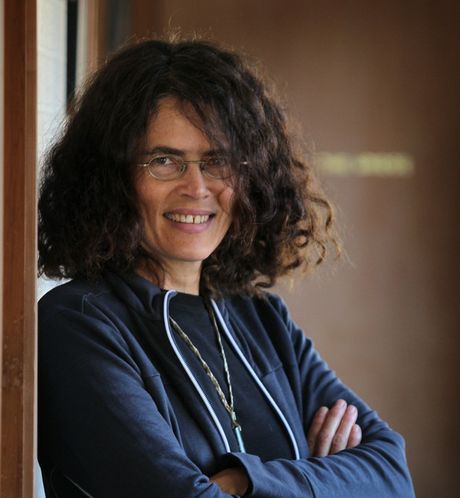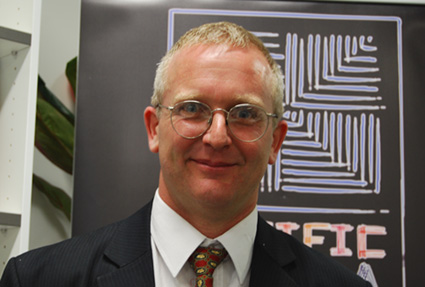AUCKLAND (Pacific Media Watch): Pioneering online media journalist and publisher Alastair Thompson has embarked on a mission to save public interest journalism in New Zealand.
“We are basically facing a crisis with no solutions in sight," says Thompson, who is editor and general manager of the independent Scoop Media.
He launched the Scoop Foundation Project at AUT University’s Pacific Media Centre on Wednesday.
Thompson says the new project is “mainly seeking to try and preserve some of the culture and some of the professional standards which lie behind the practice of journalism...
"They don’t really exist in textbooks and they don’t exist in institutions, the culture of journalism is something that previously existed in newsrooms and fairly soon we won’t have them anymore.”
Worsening situation
Thompson, who has worked in journalism since the late 1980s, has seen the conditions of news media in New Zealand deteriorate during his career.
Now he says that the government is showing “a lot of evidence of not really understanding what the limits of their ability to try and obfuscate and refuse to answer questions about matters of public policy.”
The situation is exacerbated by the lack of investigative and in-depth reporting by the New Zealand news media.
“The people who are empowered with questioning [politicians] and questioning their authority is this group of people called journalists who are increasingly under threat.”
The negative trends Thompson is referring to include layoffs of editorial staff and a concentration of media ownership.
More and more layoffs lead to less experience in the newsrooms, which has led to an erosion of journalistic practices, according to Thompson.
A concentration of media ownership has had a negative impact on competition in the news media.
Giving hope
Alison McCulloch, who is the co-spokesperson of the Scoop Foundation Project, hopes the project can contribute in reversing the trend New Zealand news media is in:
“I hope so ... [I]f nothing else, maybe it can give people a bit of hope, it can provide a bit of direction, people have somewhere to look for a possible future, so that’s all good.”
McCulloch has worked as an editor in The New York Times and thinks the American news media is better equipped than the New Zealand, simply because of the big market in the US:
“There is a philanthropic tradition [in the US], there are a lot of big foundations that can support some media. Because of the economies of scale it is really a lot harder to support in-depth journalism here, so I think we in some ways got a harder road than for example the United States and probably also the UK.”
Below is the a transcript of Pacific Media Watch's interview with Scoop editor and general manager Alastair Thompson. We asked Thompson what he hopes the Scoop Foundation Project can achieve:
We’re hoping to start to create the conditions for a new way of funding journalism in New Zealand. At the moment we basically are facing sort of a crisis with no real solutions in sight, and so the idea is just to begin start experimenting with those solutions. There is charitable money available, but a lot of it is locked up in organisations which can only provide it to philanthropic entities and currently there are no philanthropic entities involved in journalism that can really very easily take on that task.
DD: Tell me exactly how the New Zealand news media is under threat?
AT: Print media has ever declining revenue numbers, and their new digital revenue streams are growing, but they’re not growing nearly fast enough to convince anybody that they will be capable of supporting news operations that the existing media companies have. We have seen downsizing in newsroom continuously since I started in journalism more than 25 years ago.
I arrived in the Dominion in the late 1980’s and we had the first round of redundancies I think six months after I arrived, and there’s been rounds of redundancies at all the major newspapers pretty much every year, two years or so thereafter ever since.
DD: How can the media foundation contribute in reversing the trend?
AT: We don’t really expect to be able to reverse the trend. We are mainly seeking to try and preserve some of the culture and some of the professional standards which lie behind the practice of journalism. Because they don’t really exist in textbooks and they don’t exist in institutions, the culture of journalism is something that previously existed in newsrooms and fairly soon we won’t have them anymore.
DD: What is your fear for the coming decades when it comes to New Zealand news media?
AT: I have reasonable level of hope that in the next four or five years we will see some enlightened government action in this area. And perhaps the creation of some organisations which provide some basis levels of democratic media coverage. But in the absence of proper media holding governments to account, you see public officials' understanding of the rule of law and how they are supposed to behave has eroded.
And we’re already seeing that, we’re already seeing officials who have very little knowledge of what is to be expected of them. And this government is showing a lot of evidence of not really understanding what the limits are on their ability to try and obfuscate and refuse to answer questions about matters of public policy. These people are our servants, and the people who are empowered with questioning them and questioning their authority is this group of people called journalists who are increasingly under threat, I suppose. That’s really the issue.
Below is the full transcript of the Pacific Media Watch's interview with Alison McCulloch, a former editor with the New York Times, co-spokesperson of the Scoop Foundation Project. We asked McCulloch what she thinks the Scoop Foundation Project can contribute:
I think it can, we hope, help foster an in-depth investigative journalism because of the strains on the media at the moment. That is one area that is really suffering at the moment.
DD: You have been working overseas. How would you describe the New Zealand news media compared to other countries?
AMC: I think because New Zealand is, for example I was in the United States, and there is a philanthropic tradition there, there are a lot of big foundations that can support some media. Because of the economies of scale, it is really a lot harder to support in-depth journalism here, so I think we have in some ways got a harder road than for example the United States and probably also the UK.
DD: With the current development of New Zealand news media, where do you think it’s headed?
AMC: I think the news media is in complete turmoil, and anyone who thinks they know where it’s headed, well; they’re more knowledgeable than I am. I really don’t know where it’s headed, but I think one thing one [we] can do, is to try to keep to, I guess, the foundations of good journalism and plant the seed of something that could be good. It will change, it will keep changing, but if you have something there that can change too, we have to do it now.
DD: And do you think this new foundation can help reverse the situation?
AMC: I hope so. I mean, as I said, things are changing so fast it is hard to know what impact it can have. But, you know, if nothing else maybe it can give people a bit of hope, it can provide a bit of direction, people have somewhere to look for a possible future, so that’s all good.
This work is licensed under a Creative Commons Attribution-NonCommercial 3.0 New Zealand Licence.






